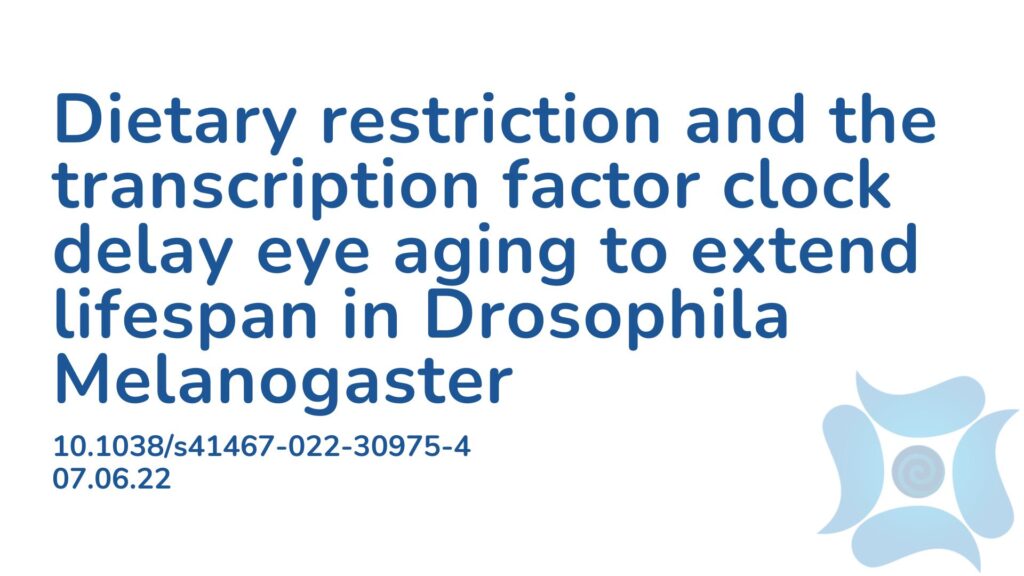Summary: Declines in function of the circadian rhythm is one of the most observed hallmarks of aging across animal and human lifeforms and is associated with negative health consequences. Based on research on fruit flies, this study has explored correlations between circadian rhythms and lifespan, but also how diet and calorie restriction improves biological rhythms, which consequently impacts lifespan. The study also identified that circadian processes in the eye are improved by diet restriction.
Abstract:
Many vital processes in the eye are under circadian regulation, and circadian dysfunction has emerged as a potential driver of eye aging. Dietary restriction is one of the most robust lifespan-extending therapies and amplifies circadian rhythms with age. Herein, we demonstrate that dietary restriction extends lifespan in Drosophila melanogaster by promoting circadian homeostatic processes that protect the visual system from age- and light-associated damage. Altering the positive limb core molecular clock transcription factor, CLOCK, or CLOCK-output genes, accelerates visual senescence, induces a systemic immune response, and shortens lifespan. Flies subjected to dietary restriction are protected from the lifespan-shortening effects of photoreceptor activation. Inversely, photoreceptor inactivation, achieved via mutating rhodopsin or housing flies in constant darkness, primarily extends the lifespan of flies reared on a high-nutrient diet. Our findings establish the eye as a diet-sensitive modulator of lifespan and indicates that vision is an antagonistically pleiotropic process that contributes to organismal aging.
Article Publication Date: 07.06.22
DOI: 10.1038/s41467-022-30975-4



